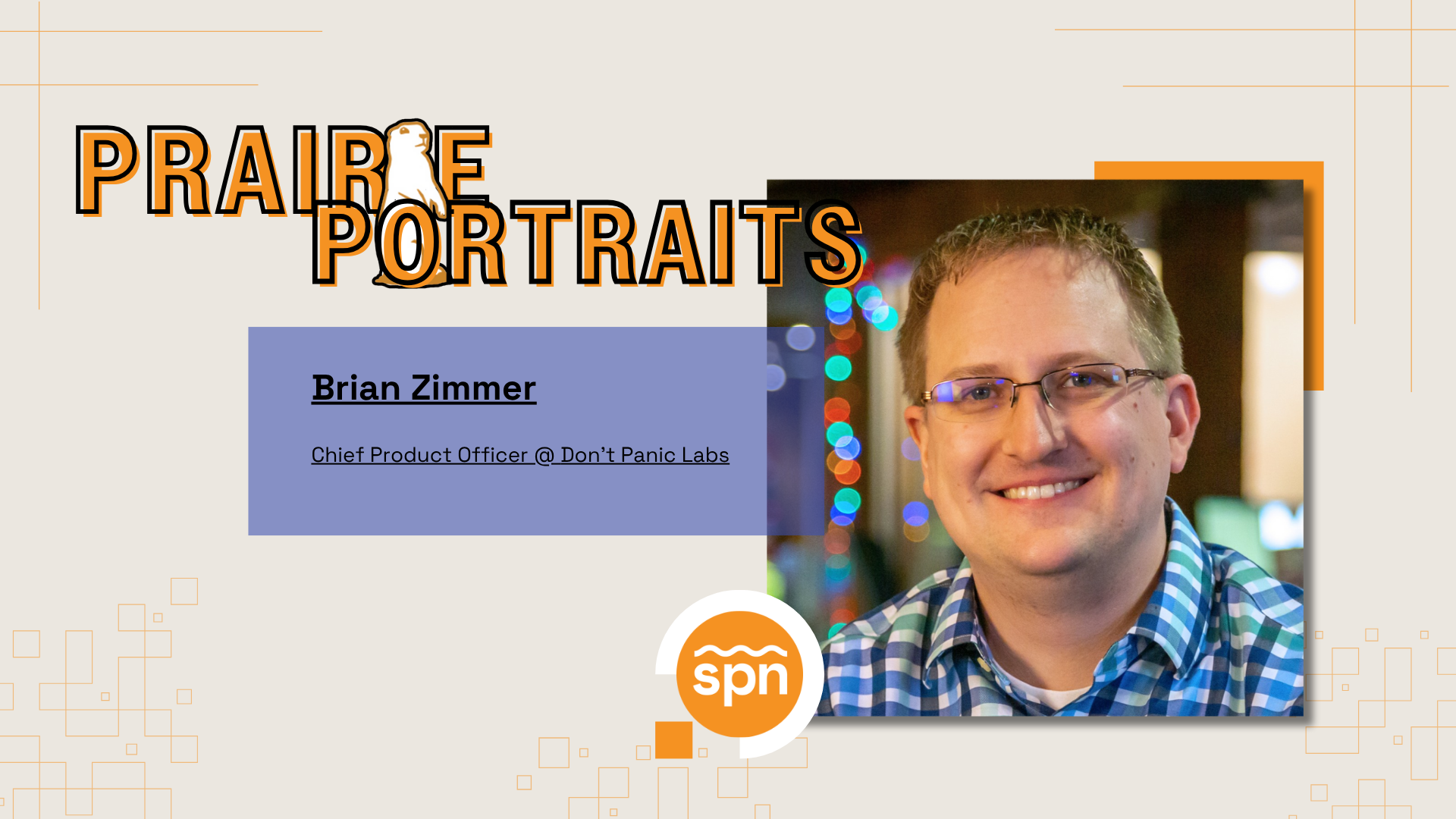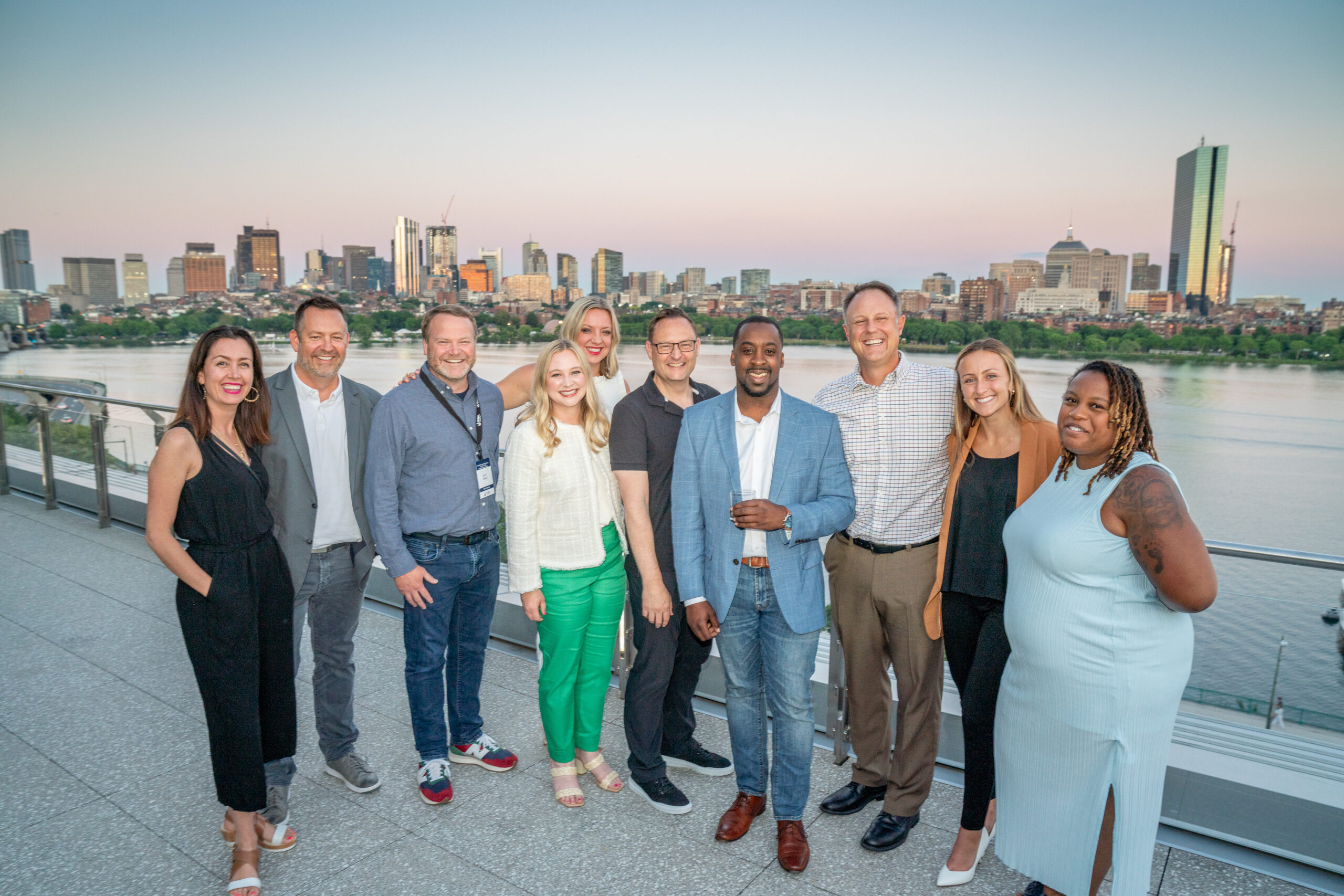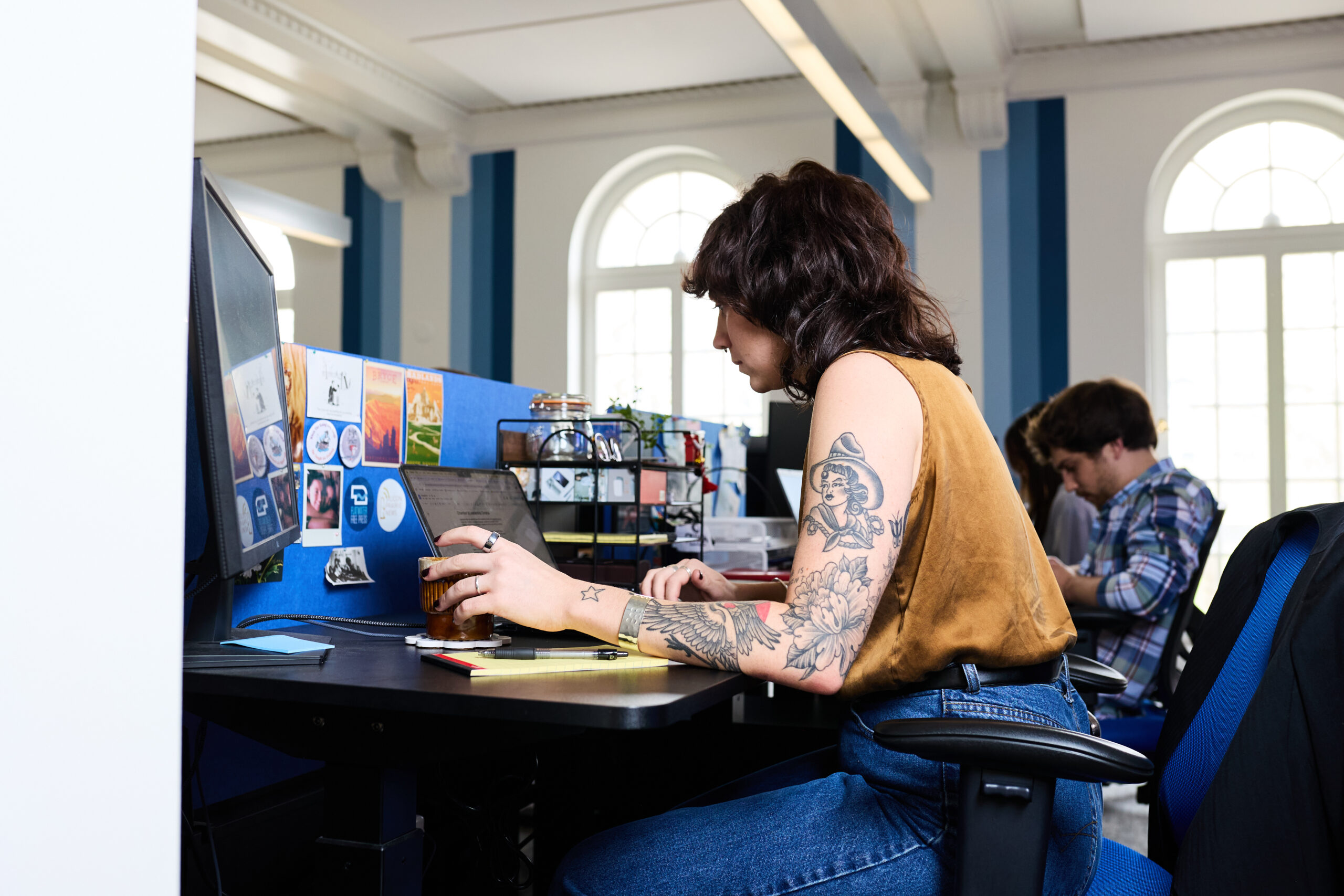Meet Brian Zimmer, Chief Product Officer @ Don’t Panic Labs
What inspired you to become an entrepreneur or support other entrepreneurs?
I was fortunate to be surrounded by entrepreneurs during my childhood, so entrepreneurship was very real and achievable. My parents thoughtfully ran the family farm and taught me about hard work, business and the wide variety of things a farmer needed to do to succeed. My grandparents owned a Motorola service center and always showed off the latest technology. I also had two uncles; one owned a landscape business and the other a law practice. I was impressed by how everyone had a purpose and genuinely enjoyed making a difference in the world.
As my interest in technology grew in high school, I started helping with IT systems at my grandpa’s business. I began finding my purpose and realized other businesses in rural Nebraska needed the same help. My parents and the David City community supported me as I started my first business, Zimmer Consulting, and I am forever grateful that these leaders invested in me. I loved how I could use technology to help solve a variety of interesting business problems and make people’s lives better.
After high school, I attended the Jeffrey S. Raikes School of Computer Science and Management at the University of Nebraska-Lincoln. I gained perspective on software product-focused businesses and met many more entrepreneurs and business leaders. When I met Steve Kiene and Doug Durham, my mind expanded again, learning of their vision to create not just a single business, but a series of startup businesses in our community. I realized that my entrepreneurial efforts could have a much broader impact. Now I’m fortunate to be in a unique spot where I can use my skills to advance the wide variety of our partners’ innovations.
What advice would you give yourself if you could go back in time to when you were just starting out?
Always be curious. As one goes through school, the focus is on learning as much as possible and providing the answers to prove that you’ve obtained that knowledge. We’re regularly assessed and scored on whether our answers are right or wrong. It’s easy to think that to be successful, one needs to have all the answers and keep up the appearance that they do.
In entrepreneurship and innovation, we rarely have all the answers. In practice, we’re actually discovering those answers as we go. Our current beliefs and mental models might actually hold us back from discovering the new insight that will be critical for discovery and success.
I also discovered that one of the most important roles of a leader is to ask thoughtful questions. This is key to improving engagement, commitment and the outcomes of our teams and organizations. When we have disagreements, rather than immediately pushing back, we should simply ask a question. At a minimum, this acknowledges the dignity of the other person and ensures they feel and are heard. Often, we’ll gain an insight into their point of view to better explore our differences or new knowledge and a chance to rethink our point of view. Adam Grant has been a huge influence on my professional development. If I could send one book back in time to help myself, I’d send Think Again.
How do you stay motivated when things feel overwhelming — or stagnant?
I lean on others and look for ways to change constraints that might be in place.
These feelings are symptoms of a deeper problem, not the actual problem itself. When you’re in the middle of these experiences, it’s hard to uncover the causes on your own. That’s why it’s important to have a support structure that can ask probing questions and start the process of uncovering what might be outside your field of view.
Once I’ve identified some of the root causes, I then consider how changing the situation might aid solving the problem. We’re often trapped by a fallacy, thinking that we can only make the best of, or optimize within, a situation. In actuality, we have more ability to change the situation than we realize through collaborating with others, pitching a plan or making asks of others.
What is the biggest challenge you’ve overcome and how did you overcome it?
One challenge I’ve worked to overcome is learning how to leverage my introverted tendencies. As I was growing up, I valued quiet and alone time. The thought of giving presentations to audiences was nerve-wracking. At the same time, I wanted to make a difference in the world and knew I needed to broadly engage with others.
At first, I misunderstood introversion as a limitation. I started putting myself into situations outside my comfort zone (participating in speech, performing musical solos, etc.). Progress came, but the real breakthrough was realizing that I had a series of strengths I could build upon, such as active listening, empathy and deep thinking. I was also surprised to discover that introverts could use these strengths to outperform in some roles that you’d stereotypically believe were suited only for extroverts.
With that realization, I now have confidence and deeply enjoy leveraging my ability to listen and process while supporting innovators in bringing their visions to reality and no longer think of introversion as a limitation.
How can the Nebraska community support you?
I’ve been constantly surprised by how people in Nebraska are so very knowledgeable and willing to support startups and innovation. One of the greatest gifts that anyone (especially startups) can receive is open and honest feedback.
Sometimes, being both supportive and delivering “tough” feedback creates tension. It’s easier to cheerlead and simply say things like, “That’s a great idea,” “People would love it” and “You should do it” to keep someone going, rather than share the tough reality that you’re not sure if it is viable and potentially disappoint the entrepreneur. On multiple occasions, I’ve witnessed founders receive positive feedback from their target market and create a product, only to have it fall flat when those same people are ultimately unwilling to purchase or use it.
I would ask that everyone take the leap and be willing to share their honest perspective with innovators. That perspective is ultimately what will lead to a pivot for viability or the freedom for an entrepreneur to realize they can abandon their current idea and move on to the next.





Leave a Reply